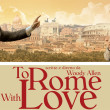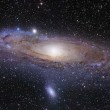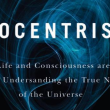Why Aren’t You Naked?
by Marc Barnes
Filed under Anthropology

I’m curious as to why man is in the habit of wearing clothes, when no other animal has been spotted with even the smallest, most insignificant of socks. We could say it’s the fault of the cold, but humans wear clothes at the Equator. We could take a Darwinian tactic and argue that clothes are hygienic—and thus the people who wore clothes outlived and out-reproduced those who ran young, wild and free—but this assumes too much. A soiled rag around the crotch seems far less healthy... Read More
How Catholics Understand the Bible

NOTE: Over the past several months, we've had lots of combox discussion about how Catholics read and interpret the Bible. To help us all make sense of this question, we're beginning a multi-part series on the topic. Once a week, for the next several weeks, Mark Shea will unpack how Catholics authentically read the Bible. Today he offers a general introduction, next week he'll outline three specific guidelines, and the following week he'll begin covering the three main spiritual senses... Read More
Skeptic Benjamin Radford on the Fátima Miracle
by Dr. Stacy Trasancos
Filed under The Existence of God

Paranormal investigator Benjamin Radford has written a piece for Live Science on the The Lady of Fátima & the Miracle of the Sun. Mr. Radford is the deputy editor of Skeptical Inquirer science magazine and a Research Fellow with the non-profit educational organization the Committee for Skeptical Inquiry. Mr. Radford answers the question: What really happened at Fátima? On October 13, 1917, between 30,000 to 100,000 people gathered near... Read More
Modern Physics, Ancient Faith: An Interview with Physicist Dr. Stephen Barr
by Brandon Vogt
Filed under Christianity and Science

Some news hooks are irresistible, even when they're false or at least incomplete. Case in point: the alleged conflict between science and religion. Is science opposed to religion? The answer depends in large measure on what you mean by religion. If your "religion" is, say, astrology, then you could say there's a conflict between science and "religion". The science of astronomy does conflict with the "religion" of astrology. Probably most people who speak of a conflict between science and... Read More
Woody Allen the Moralist
by Bishop Robert Barron
Filed under Anthropology

Who would have thought that Woody Allen, who twenty years ago was separating from his longtime girlfriend to notoriously marry her adopted daughter, would emerge as a defender of what can only be called traditional morality? And yet, I find that conclusion unavoidable after viewing the writer-director’s recent offering, “To Rome With Love.” This film is the latest in a series of Woody Allen movies—“Match Point,” "Vicky Christina Barcelona,” “Midnight in Paris”—celebrating... Read More
Would God Create a Gigantic Universe?
by Trent Horn
Filed under Cosmology, God's Nature

Some critics claim that if God existed, then the universe would not be 13.7 billion years old or be 93 billion light years across as it is currently. Hasn’t science shown that this immense universe was not created for us but that we are an inconsequential part of an uncreated universe? The problem with this argument is that science can show us only the universe’s dimensions; it cannot reveal any meaning or lack of meaning inherent in those dimensions. In response to this argument,... Read More
The Single Best Argument Against Philosophical Materialism?
by R.P. Ritchie
Filed under Atheism

A Dilemma for Materialists In my experience, it's often difficult for my intelligent atheist friends to seriously consider arguments for the truth of Christianity. An argument from the resurrection of Jesus remains implausible because their worldview fundamentally excludes this sort of event. In light of this, I'd like to engage one popular form of this worldview, namely philosophical materialism. Thus here’s my dilemma for materialists: 1. Either subjective experience, in its... Read More
Is Reality Just What We Think It Is?
by Dr. Benjamin Wiker
Filed under Anthropology

The human mind, by its nature, strives to know everything. But just because we have the desire to know everything, our reach often exceeds a sure grasp of reality, and we fall into fantasy. So it is with Robert Lanza's Biocentrism: How Life and Consciousness are the Keys to Understanding the True Nature of the Universe which offers a new and elaborate form of solipsism. The universe and everything in it, Lanza asserts confidently, exists because we perceive it. In his words, "the observer... Read More
Why Does God Allow Sin and Suffering?
by Jimmy Akin
Filed under The Problem of Evil

The most perplexing problem in apologetics is the problem of evil: Why would an all-good, all-powerful God allow evil to exist? There is a real mystery here, and we can only give partial answers. Here are some of mine . . . Two Kinds of Evil We need to recognize that there is more than one kind of evil. When we use the word "evil," we often mean moral evil (sin), but historically it was frequently used for other things, such as suffering. These two forms of evil are linked: It... Read More
A Tale of Two Hitchens
by Bishop Robert Barron
Filed under Atheism

Over the years, I’ve written often about the late Christopher Hitchens, who over the last decade has probably been the world’s most prominent atheist. When we learned of his terminal cancer, I did a piece on the CNN blog, urging Christians to pray for Hitchens—and to my astonishment, this benign recommendation was met with an extraordinarily negative reaction from atheists. But that’s a story for another day. What I'd like to write about today concerns a recent vacation on which... Read More






